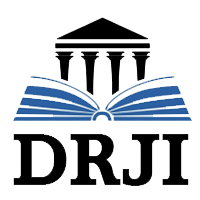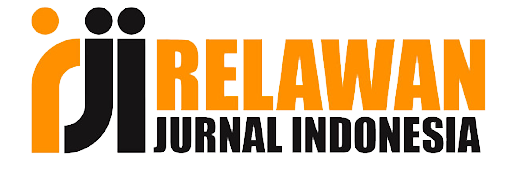Universalitas Sikap Prososial: Menelusuri Kaitannya dengan Persepsi Multikulturalisme
Abstract
Prosociality universal application, which transcends the boundaries of social and cultural differences, enabled people to support collective well-being. However, the tendency to limit helping behavior to group interests undermines its universality and does not lead to a harmonious society. The phenomenon of Indonesian society in recent years has shown a trend towards exclusive ingroup support and rejection of outgroup empowerment, especially in Muslim communities in Indonesia. The lackluster outgroup support from the community suggested an underlying problem, which is how people perceive religious diversity in general. The purpose of this study is to determine how attitudes that support diversity promotion relate to how social norms about diversity are perceived. The Normative Multiculturalism Scale and Prosocial Attitudes toward Out-group measures were completed by 81 Muslim individuals through an online survey. Correlational analysis was conducted by examining the relationship between the dimensions of Normative Multiculturalism and Prosocial Attitudes towards the Out-group. The results showed significant positive correlations on each dimension of Normative Multiculturalism.
Pengaplikasian perilaku menolong yang melewati batas-batas perbedaan sosial dan budaya, memampukan manusia mencapai kesejahteraan kolektif. Namun, kecenderungan membatasi perilaku menolong untuk kepentingan kelompok, menggagalkan prinsip keuniversalannya dan tidak mewujudkan kehidupan masyarakat yang harmonis. Fenomena kehidupan masyarakat Indonesia dalam beberapa tahun terakhir menunjukkan tren pada pembatasan sikap dukungan yang eksklusif pada ingroup dan sikap penolakan pemberdayaan outgroup, khususnya pada masyarakat Muslim di Indonesia. Rendahnya sikap dukungan masyarakat terhadap out-group mengusulkan masalah yang lebih mendasar, yaitu persepsi terhadap keberagaman agama. Penelitian ini bertujuan untuk mengidentifikasi hubungan persepsi norma sosial terhadap keberagaman dengan sikap dukungan terhadap promosi keberagaman. Pengukuran Multikulturalisme Normatif dan Sikap Prososial terhadap Out-group diselesaikan oleh 81 Muslim melalui survei online. Analisis korelasional dilakukan dengan menguji hubungan dimensi Multikulturalisme Normatif dengan Sikap Prososial terhadap Out-group. Hasil menunjukkan korelasi positif yang signifikan pada setiap dimensi Multikulturalisme Normatif.
Keywords
Full Text:
PDFReferences
Ajzen, I. (1985). From intentions to actions: A theory of planned behavior. In Action control: From cognition to behavior (pp. 11-39). Berlin, Heidelberg: Springer Berlin Heidelberg.
Ajzen, I. (1991). The theory of planned behavior. Organizational behavior and human decision processes, 50(2), 179-211.
Alvarez, K., & Van Leeuwen, E. (2011). To teach or to tell? Consequences of receiving help from experts and peers. European Journal of Social Psychology, 41(3), 397-402.
Arman, L. (2022). In Indonesia, a Rising Tide of Religious Intolerance. The Diplomat. https://thediplomat.com/2022/10/in-indonesia-a-rising-tide-of-religious-intolerance/
Bai, G., & Bai, Y. (2020). Voluntary or forced: different effects of personal and social norms on urban residents’ environmental protection behavior. International Journal of Environmental Research and Public Health, 17(10), 3525.
Briggs, S. R., & Cheek, S. M. (1986). The role of factor analysis in the development and evaluation of personality scales. Journal of Personality, 54, 101-143.
Buchan, N. R., Grimalda, G., Wilson, R., Brewer, M., Fatas, E., & Foddy, M. (2009). Globalization and human cooperation. Proceedings of the National Academy of Sciences, 106(11), 4138-4142.
Cole, E. R., Case, K. A., Rios, D., & Curtin, N. (2011). Understanding what students bring to the classroom: Moderators of the effects of diversity courses on student attitudes. Cultural Diversity and Ethnic Minority Psychology, 17(4), 397.
Curtin, N., Stewart, A. J., & Cole, E. R. (2015). Challenging the status quo: The role of intersectional awareness in activism for social change and pro-social intergroup attitudes. Psychology of Women Quarterly, 39(4), 512-529.
Decety, J., Bartal, I. B. A., Uzefovsky, F., & Knafo-Noam, A. (2016). Empathy as a driver of prosocial behaviour: highly conserved neurobehavioural mechanisms across species. Philosophical Transactions of the Royal Society B: Biological Sciences, 371(1686), 20150077.
DeSombre, E. R. (2018). Why good people do bad environmental things. Oxford University Press.
Effendi, T. N. (2013). Budaya Gotong-Royong Masyarakat dalam Perubahan Sosial Saat Ini. Jurnal Pemikiran Sosiologi, 2(1).
Gross, J., & De Dreu, C. K. (2019). Individual solutions to shared problems create a modern tragedy of the commons. Science advances, 5(4), eaau7296.
Guimond, S., de La Sablonnière, R., & Nugier, A. (2014). Living in a multicultural world: Intergroup ideologies and the societal context of intergroup relations. European Review of Social Psychology, 25(1), 142-188.
Hartati, T. S., & Izzaty, R. E. (2020). The Effect of Peer and Empathetic Social Support Together and Individually on Prosocial Behavior in Adolescents. International Journal of Multicultural and Multireligious Understanding, 6(3), 1118-1131.
Hoon, C. Y. (2006). Assimilation, multiculturalism, hybridity: The dilemmas of the ethnic Chinese in post-Suharto Indonesia. Asian Ethnicity, 7(2), 149-166.
Hoon, C. Y. (2017). Putting religion into multiculturalism: Conceptualising religious multiculturalism in Indonesia. Asian Studies Review, 41(3), 476-493.
Hopkins, N., Reicher, S., Harrison, K., Cassidy, C., Bull, R., & Levine, M. (2007). Helping to improve the group stereotype: On the strategic dimension of prosocial behavior. Personality and Social Psychology Bulletin, 33(6), 776-788.
Jensen, K., Vaish, A., & Schmidt, M. F. (2014). The emergence of human prosociality: aligning with others through feelings, concerns, and norms. Frontiers in psychology, 5, 91239.
Johanes, Y., & Meinarno, E. A. (2024). Memahami Kebhinekaan Indonesia itu Perlu Desain. Psyence.id. https://psyence.id/2024/02/05/memahami-kebhinekaan-indonesia-itu-perlu-desain/
Kontras. (2023, Desember 30). Memerangi Narasi Negatif Isu Pengungsi Rohingya “Saat Atensi Lebih Penting Dibandingkan Informasi”. https://kontras.org/2023/12/30/memerangi-narasi-negatif-isu-pengungsi-rohingya-saat-atensi-lebih-penting-dibandingkan-informasi/
Kusnandar, V. (2022, February 12). Sebanyak 86,93% Penduduk Indonesia Beragama Islam pada 31 Desember 2021. Databoks. https://databoks.katadata.co.id/datapublish/2022/02/12/sebanyak-8693-penduduk-indonesia-beragama-islam-pada-31-desember-2021
Marshall, P. (2023). Yasmin Church Dispute Reveals the Tensions in Indonesia’s Religious Policy. The Diplomat. https://thediplomat.com/2023/04/yasmin-church-dispute-reveals-the-tensions-in-indonesias-religious-policy/
Mashuri, A., & Zaduqisti, E. (2014). National identification and collective emotions as predictors of pro-social attitudes toward Islamic minority groups in Indonesia. Europe’s Journal of Psychology, 10(2), 255-276.
Mashuri, A., Zaduqisti, E., & Ula, M. (2017). A majority group’s perspective-taking towards a minority group: Its antecedents and impact on support for minority helping. Psychology and Developing Societies, 29(1), 44-73.
McKeown, S., & Taylor, L. K. (2018). Perceived peer and school norm effects on youth antisocial and prosocial behaviours through intergroup contact in Northern Ireland. British Journal of Social Psychology, 57(3), 652-665.
Meinarno, E. A., & Mashoedi, S. F. F. (2016). Pembuktian kekuatan hubungan antara nilai-nilai pancasila dengan kewarganegaraan. Jurnal Ilmiah Pendidikan Pancasila dan Kewarganegaraan, 1(1), 12-22.
Muchtar, A. T., Purbolaksono, A., Intania, C. C., Primaresti, F. (2024). Evaluation of the Requirements for the Establishment of Houses of Worship. The Indonesian Institute. https://www.theindonesianinstitute.com/wp-content/uploads/2024/04/Policy-Paper-Evaluation-of-the-Requirements-for-the-Establishment-of-Houses-of-Worship-in-PBM-2006-for-the-Right-to-Freedom-of-Religion-and-Belief-in-Indonesia.pdf
Nagda, B. R. A., Kim, C. W., & Truelove, Y. (2004). Learning about difference, learning with others, learning to transgress. Journal of social issues, 60(1), 195-214.
Opp, K. D., & Hechter, M. (2001). Social norms. Russell Sage Foundation.
Pamungkas, C. (2015). Social contexts of exclusionary reactions: study on Muslim and Christian relation in the city of Ambon. Indonesian Journal of Islam and Muslim Societies, 5(1), 49-78.
Pang, Y., Song, C., & Ma, C. (2022). Effect of different types of empathy on prosocial behavior: Gratitude as mediator. Frontiers in psychology, 13, 768827.
Pettigrew, T. F. (1998). Intergroup contact theory. Annual review of psychology, 49(1), 65-85.
Rossi, G., Dingemanse, M., Floyd, S., Baranova, J., Blythe, J., Kendrick, K. H., ... & Enfield, N. J. (2023). Shared cross-cultural principles underlie human prosocial behavior at the smallest scale. Scientific reports, 13(1), 1-14.
Setara Institute. (2023). Indeks Kota Toleran 2022. https://setara-institute.org/indeks-kota-toleran-2022/
Simon, B., Stürmer, S., & Steffens, K. (2000). Helping individuals or group members? The role of individual and collective identification in AIDS volunteerism. Personality and Social Psychology Bulletin, 26(4), 497-506.
Smith, J. R., & Louis, W. R. (2009). Group norms and the attitude–behaviour relationship. Social and Personality Psychology Compass, 3(1), 19-35.
Stuart, J., & Ward, C. (2019). Exploring everyday experiences of cultural diversity: The construction, validation, and application of the normative multiculturalism scale. European Journal of Social Psychology, 49(2), 313-332.
Suradi, A., Kenedi, J., & Surahman, B. (2020). Religious tolerance in multicultural communities: Towards a comprehensive approach in handling social conflict. Udayana Journal of Law and Culture, 4(2), 229.
Tip, L. K., Brown, R., Morrice, L., Collyer, M., & Easterbrook, M. J. (2019). Improving refugee well-being with better language skills and more intergroup contact. Social Psychological and Personality Science, 10(2), 144-151.
van Leeuwen, E., & Täuber, S. (2012). Outgroup helping as a tool to communicate ingroup warmth. Personality and Social Psychology Bulletin, 38, 772-783.
van Leeuwen, E., & Mashuri, A. (2013). Intergroup helping in response to separatism. Personality and Social Psychology Bulletin, 39(12), 1647-1655.
Vermue, M., Meleady, R., & Seger, C. R. (2019). Member-to-member generalisation in trust behaviour: How do prior experiences inform prosocial behaviour towards novel ingroup and outgroup members?. Current Psychology, 38, 1003-1020.
Ward, C., Kim, I., Karl, J. A., Epstein, S., & Park, H. J. (2020). How normative multiculturalism relates to immigrant well-being. Cultural diversity and ethnic minority psychology, 26(4), 581.
Watters, S. M., Ward, C., & Stuart, J. (2020). Does normative multiculturalism foster or threaten social cohesion?. International Journal of Intercultural Relations, 75, 82-94.
Weiss, J. W., & Garbanati, J. A. (2006). Effects of acculturation and social norms on adolescent smoking among Asian-American subgroups. Journal of ethnicity in substance abuse, 5(2), 75-90.
Zhang, W., Liu, Y., Dong, Y., He, W., Yao, S., Xu, Z., & Mu, Y. (2023). How we learn social norms: a three-stage model for social norm learning. Frontiers in Psychology, 14, 1153809.
DOI: https://doi.org/10.24176/perseptual.v10i1.13203
Refbacks
- There are currently no refbacks.

Jurnal Psikologi Perseptual (eISSN 2580-9520) is licensed under a Creative Commons Attribution-ShareAlike 4.0 International License














